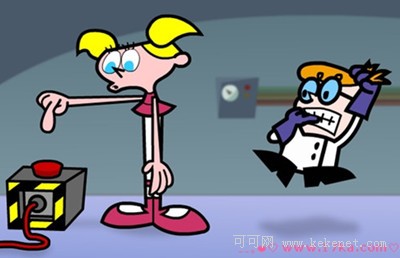Blair: Bet's off.
一切都不玩完了。
Chuck: But the game's not over.
但是游戲還沒結束呢。
Blair: I'm calling it on account of boredom. You were right. Vanessa's not worth playing with.
我之所以這么說是因為太無聊了。你是對的,Vanessa不值得我們陪她玩。
Chuck: Maybe she is, maybe she isn't. Why the sudden change of heart?
也許吧,誰知道呢。為什么突然改主意了?
Blair: Like I said, the whole thing is dull. Pursuing Vanessa is beneath us both.
我說過了,這一切都太無聊了。追著Vanessa不放只會降低我們的身份。
——Gossip Girl

on account of:由于,因為
Bill cannot come to the meeting on account of illness.
比爾因病不能到會。
We're late on account of the bad traffic.
我們遲到是因為交通擁擠。
要注意:on account of ,because of ,due to , owing to , 和 thanks to 的用法比較
這一組詞都表示"由于"的意思,在使用時應該注意以下區別:
1.because of意為"由于,因為",強調因果關系,在句中僅作狀語,修飾句中的一部分,與其他成分不用逗號隔開。如:??
We must not get discouraged because of such a minor setback.我們決不可因為這樣一個小小的挫折而灰心喪氣。
2.owing to與because of一樣,也強調因果關系,除作狀語外,也可作表語。作狀語時修飾整個句子,可在句首或句末,用逗號隔開。如:
They decided to cancel the flight,owing to the storm. 由于這場暴風雨,他們決定取消這個航班。
3.due to引出造成后果的原因,在句中作表語、狀語和定語。作表語和狀語時與owing to同義,作狀語時,一般不與其他成分隔開。如:
This accident was due to(owing to)his careless driving.這次車禍是由于他開車疏忽大意造成的。
4.on account of與because of,owing to同義,但語氣較為正式。可作狀語、表語,不作定語。如:
He could not come on account of his illness.他因病不能前來。
5.thanks to表示"幸虧,多虧"多用于表達正面意思,相當于感謝,在句中作狀語和表語。如:
Thanks to your advice,much trouble was saved.多虧你的建議,減少了許多麻煩。











